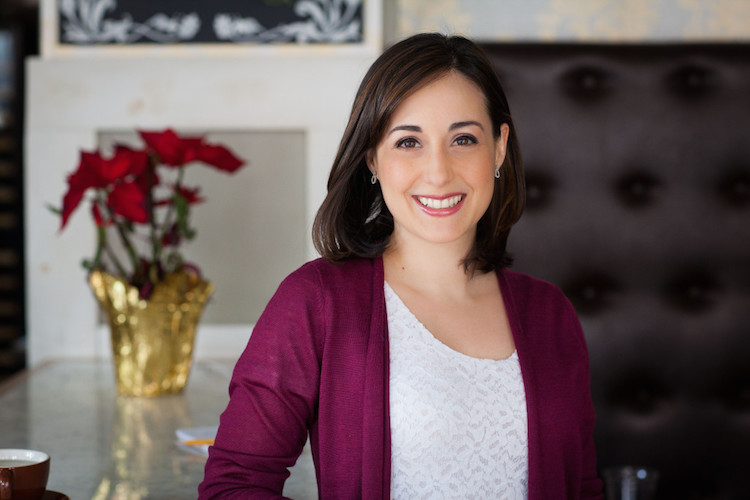Paula Rizzo is the founder of ListProducer.com and the author of Listful Thinking: Using Lists to be More Productive, Highly Successful and Less Stressed.
She understands that finding ways to use lists and other productivity tricks can help one become more effective at work and in life, countering the effects of being overwhelmed and overworked. She’s helped thousands of people achieve real change through her blog, her columns at Entrepreneur and Mind Body Green, and her popular book.
How did list-making become the focus of your writing and teaching work?
Lists changed my life. I’ve always used lists, checklists and time management tools in my job as a TV producer. But I wasn’t always using those same tactics at home. When my husband and I were looking for an apartment in NYC — I was overwhelmed and disorganized. I would leave each apartment feeling defeated and not remember what we had just looked at. Plus I would get distracted, so I needed a new technique.
I attacked that task like I would a shoot at my day job. When I interview someone I have a checklist of all the questions I want to ask and all the shots I need to get. I’ve been doing my job for a long time but distractions happen and it’s always good to have a backup. So I did the same for the apartment and was able to focus and ask the right questions. A friend asked for that list and her real estate agent asked to photocopy the list for his clients.
My friend came to me and said not everyone does what you do with lists. You’re onto something – you should do something more with it. And then ListProducer.com was born in April 2011. From that came my book Listful Thinking: Using Lists to be More Productive, Highly Successful and Less Stressed.
What are some assumptions or misconceptions about list-making that you often encounter?
People always think it’s all about the to-do list or the grocery list. But there are so many other amazing and useful lists. I mentioned the checklist but also the pro and con list, the to-become list, the just-enough list, gratitude lists — they are all wonderful ways to work things out on paper (or in an app!)
Also many people think that making a list is cheating and means you don’t have a good memory. That may be the case but it can be such a powerful tool for succeeding.
Are there some common obstacles that seem to limit people from becoming more productive?
Two things come to mind. One is that people mix their lists. It’s important to keep long goal lists separate from short term goal lists. Combining these on a list can result in more disorganization and clutter, impeding your ability to complete tasks and remain productive. Separate tasks that need to get done that day into one section, and have a separate section for items that can get done in the future.
The other is that people misjudge how long a task will actually take. Often we will say that something will just take 5 more minutes but then we’re sitting at our computer 25 minutes later still working on that same task. A way to get around that is to actually time how long it will take you to do certain tasks so you know how to properly delegate your time.
What inspired you to create your Inbox Zero email course?
I created Take Back Your Inbox because so many of my readers told me they were struggling with overflowing emails. And the truth is, I struggled with the same problem. I missed out on a very juicy opportunity because I couldn’t get my email under control. So I sought out a checklist for getting it back under control. That checklist became the foundation for Take Back Your Inbox.
What did you learn about your own creative processes and productivity during your experience writing your book, Listful Thinking?
I really need deadlines to accomplish anything. That was very clear. I needed to give myself a timeline for finishing each phase of the book and put it in my calendar. Once I did that it wasn’t as daunting because I just followed my outline.
I also learned that my own personal productivity style is different than other people. I’m used to working in a busy newsroom with lots of people talking and available to give you a synonym on demand. Without that buzz it was really hard for me to work on my book. So I had to go to cafes and meet up with a writing partner to keep my momentum going.







